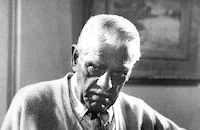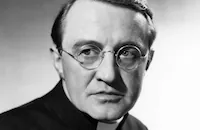Tap Roots
Cast & Crew
George Marshall
Van Heflin
Susan Hayward
Boris Karloff
Julie London
Whitfield Connor
Film Details
Technical Specs

Synopsis
In 1860, "Big Sam" Dabney, the founder of the Dabney plantation in Levington, Mississippi, urges his granddaughter Morna to marry her military officer beau, Clay MacIvor, before he dies. Morna begins to feel her elderly grandfather's urgency when she realizes her younger sister Aven is also interested in Clay. Clay, however, feels that they should delay their wedding, as civil war is imminent. Learning that Mississippi plans to leave the Union upon Lincoln's election, Big Sam collapses and dies. Incensed by an editorial about his grandfather, Morna's brother Bruce is later stopped from challenging Keith Alexander, the rakish publisher and editor of The Mississippi Whig , to a duel by Tishomingo, Big Sam's Choctaw Indian friend. Keith rides to the Dabney plantation on the pretext of making amends and quickly runs afoul of Clay. Upon Lincoln's election, Clay leaves Levington for Washington, refusing Morna's pleas to marry. With Clay away, Keith begins his courtship of Morna. Meanwhile, Morna's father Hoab makes plans to annex Levington Valley from Mississippi and declare it a neutral area, and, though skeptical, Keith agrees to give Hoab his newspaper's support. Later, Morna is paralyzed in a horseback riding accident, so the illegitimate Keith, having fallen in love with her, writes his powerful father in Washington to request an emergency leave for Clay. Upon his return to Levington, Clay refuses to break his engagement to the invalid Morna, yet begins a romance with Aven. As the secession of the southern states from the Union begins, Hoab and his supporters rally to the neutral Levington, and Clay, a Confederate loyalist, is ordered to leave the valley. He and Aven then elope, breaking Morna's heart. Though Dr. MacIntosh declares Morna's disability untreatable, Tishomingo begins Indian massage therapy, and months later, Morna begins to regain movement in her legs. Keith then makes his now honorable intentions clear, but Hoab warns him that Morna is still hopelessly in love with Clay. In the meantime, Clay uses his knowledge of the Dabneys' land to prepare for a Confederate assault on Levington, which includes blockading of the valley's supply lines to the Gulf of Mexico. As the rainy season begins, Keith heads south with three hundred men in hopes of bringing new supplies to Levington by mule trains. Tishomingo and Bruce, however, capture one of Clay's men, and learn that a Confederate attack upon the valley from the north is imminent. Knowing that Keith is twelve hours away, Morna rides to the Confederate camp to meet with Clay. Upon learning of Morna's plan, Tishomingo rides ahead to stop her, but is shot and killed by a Confederate sentry. Morna then seduces Clay, delaying the attack long enough for Keith's men to be recalled to Levington. The next morning, Morna tells Clay why she seduced him, but he, in turn, informs her that he used the time to move his cannons forward, realizing with her arrival that a surprise attack was impossible. As the Confederate attack begins, Keith orders his men to retreat into the swamps from the cannon fire. The Levington men are defeated nevertheless, but the sharpshooter Keith manages to kill Clay before the battle ends. Afterward, Morna returns to her family, and Hoab accuses her of disloyalty. Keith, however, states that her actions were heroic and openly proclaims his love. Finally realizing his responsibility in the destruction of the Dabney plantation, Hoab collapses and dies in his wife Shellie's arms. Keith then tells Morna that her family legacy will survive, as long as the tap root upon which Big Sam proclaimed his ownership lives on.

Director

George Marshall
Cast

Van Heflin

Susan Hayward

Boris Karloff

Julie London
Whitfield Connor

Ward Bond

Richard Long

Arthur Shields

Griff Barnett
Sondra Rodgers
Ruby Dandridge
Russell Simpson
Jack Davis

Gregg Barton

George Hamilton

Jonathan Hale
Arthur Space

Kay Medford
William Haade

Harry Cording
George Lewis
Jack Worth
Joe Whitehead
William Challee
John James
Charles Flynn
Keith Richards
Bill Neff
Hank Worden
Robert O'neil
Jack Shutta
Frank White
Dick Dickinson
Monte Montague
John Beck
Henry Vroom
Elmo Lincoln
Shephard Houghton
Helen Mowery
Crew
Glenn E. Anderson
Leslie I. Carey
Milton Carruth
Carmen Dirigo
Russell A. Gausman
Alexander Golitzen
Winton C. Hoch
Natalie Kalmus
Alan Lemay
Ruby R. Levitt
Lionel Lindon
George Marshall
Morgan Padelford
Frank A. Richards
Aaron Rosenberg
Frank Skinner
David Tamkin
George Templeton
Walter Wanger
Walter Wanger
Bud Westmore
Lionel Wiggam
Yvonne Wood

Film Details
Technical Specs

Quotes
Trivia
Notes
The film begins with the following spoken foreword: "This is the story of a Mississippi family, a family whose pioneer men and women had carved their broad plantations out of the wilderness itself. By 1860, their pleasant valley had become almost a state within a state, its people very willing to risk their lives on any chance, rather than to acknowledge the authority of any conscience but their own. These were the famous Dabneys of Levington." According the film's press book, Universal filmed portions of Tap Roots in the Great Smoky Mountains and the Blue Mountains near Asheville, NC. The press book notes that as there were no real white oak trees near Ashton which met the film's requirements, the Universal special effects department in California constructed an artificial one, which was then shipped to the North Carolina location. Further, in order to match location shots with those made on the Universal back lot, twenty barrels of North Carolina red clay were shipped back to the studio in California. During the film's production, actress-singer Julie London eloped to Las Vegas with Jack Webb, later known as the star-producer of the radio and television series of Dragnet. The two were married until 1954. London later appeared on the NBC television series Emergency, which Webb produced from 1972 to 1977. According to Hollywood Reporter news items, Universal borrowed London from Sol Lesser's company and Van Heflin from M-G-M for the film. A radio version of Tap Roots, with Van Heflin, Susan Hayward and Richard Long reprising their film roles, was broadcast by the Lux Radio Theatre on September 27, 1948.












